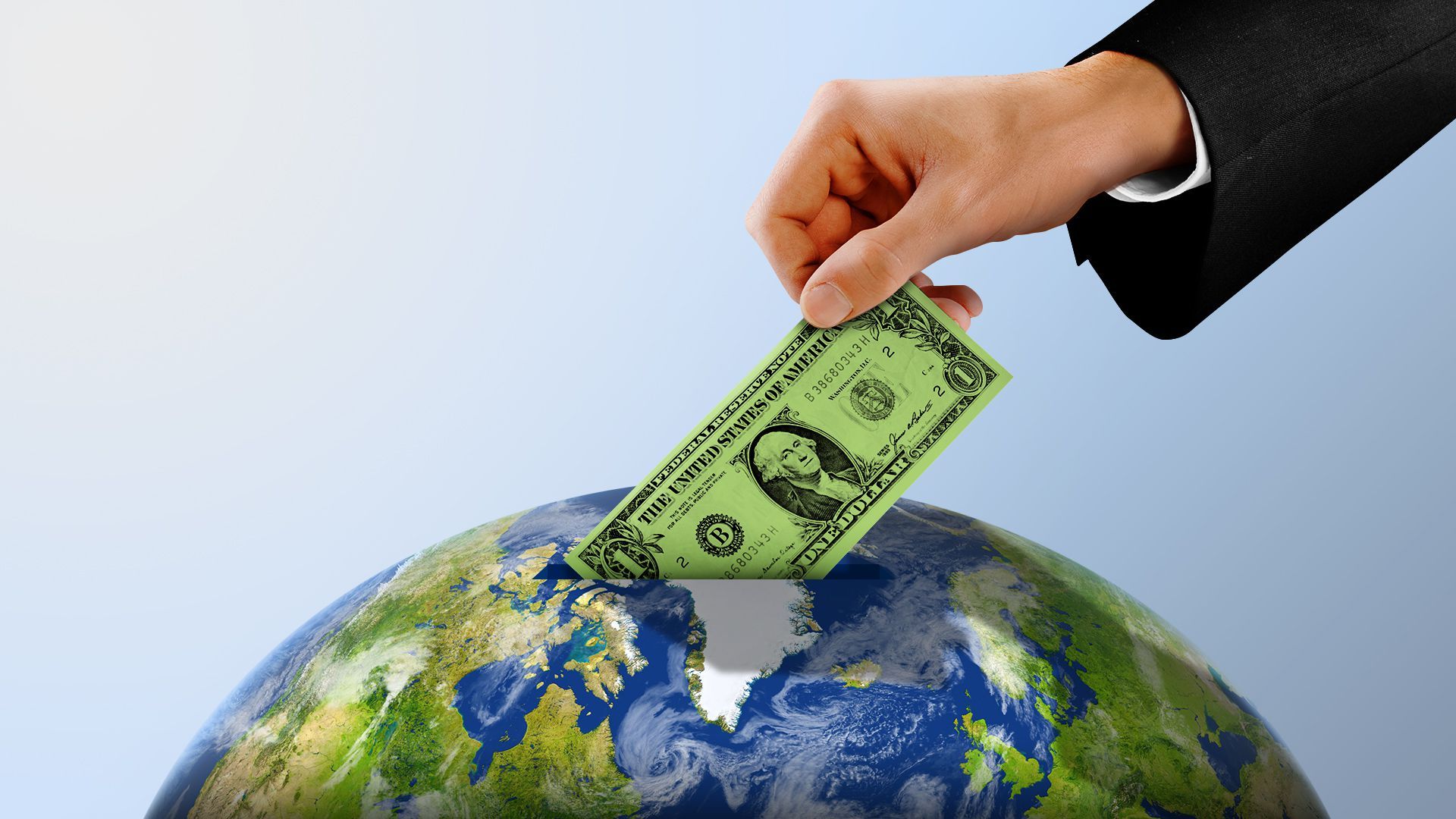ESG standards go global
Add Axios as your preferred source to
see more of our stories on Google.

Illustration: Aïda Amer/Axios
55 of the world's largest companies are allowing themselves to be compared on key environmental, social, and governance standards. The long-awaited announcement standardizes reporting on everything from anti-corruption protocols to pay equality and greenhouse gas emissions.
Why it matters: The standardized metrics are global, and — crucially — have been signed onto by all four of the big accountancy companies. Deloitte, EY, KPMG and PwC will ensure that all companies calculate the metrics the same way, making it possible for the first time to accurately measure companies against each other.
How it works: The Stakeholder Capitalism Metrics, as they're known, fall under four broad headings of people, planet, prosperity, and governance. They're applicable to all companies, public or private, regardless of industry or region.
- Early adopters include Bank of America, Fidelity, Heineken, IBM, Mastercard, McKinsey, Nestlé, PayPal, Sony, Unilever, and many others.
What to watch: The new standards will make life a lot easier for regulators, investors, or anybody else who wants to to judge companies on areas from water consumption to the amount of tax they pay.
What they're saying: "It's about companies setting clear metrics, measuring our progress, and holding ourselves accountable,” said Salesforce CEO Marc Benioff.
What's next: There's still a lot further to go. No regulators have mandated reporting of these standards, which aren't included in GAAP accounting principles.
- Data providers like Refinitiv and Bloomberg have yet to incorporate them into their software. And because the standards have only now been finalized, there's no historical data by which to measure progress.
The bottom line: "This is not the end, it's the beginning," EY CEO Carmine di Sibio told Axios.
- Some companies will report these metrics voluntarily — but the lowest performers won't report their numbers unless and until they have to.
